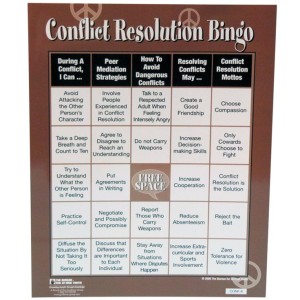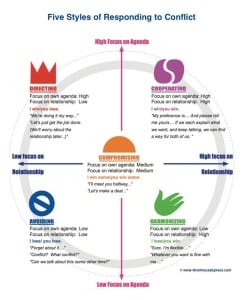Executing a Will – Part 2: Maneuvering Through the Family Dynamics
Caregivers may find their job isn’t over after the loss of a loved one because of all the work associated with executing a will. And often it’s not just a matter of paperwork, which was covered in part 1, but a matter of maneuvering the family dynamics (one of the trickiest parts of executing a will).
Every family handles conflict differently. Some try to avoid it, others confront it head on, while others are good at compromise and collaboration. Often it was the parents who played the role of mediator. But when the parents are gone, who will play that role in your family? Is it the oldest? Is it the executor of the will?
Even the most stable families can run into conflicts when it comes to sorting out who gets what….or, as some might think of it, who deserves what. As you think ahead to being prepared for executing a will, remember to consider any family issues that you can preempt.

How the Will Can Help Avoid Conflict
The whole idea behind having a will is to spell out who gets what so that there won’t be conflicts. That means, specifying, not only how financial assets will be distributed but how physical property will be distributed. In other words, it gives the deceased the last say. But we’ve all heard of lengthy fights over wills of the rich. Even families without millions can get caught up in fights over who gets what, often over sentimental items. That’s where being specific helps, including how treasured trinkets will be handled. Keep in mind that shared ownership of property (ex., the family cottage) can lead to problems, too. Do you want it to stay in the family and handed down? What if your children don’t agree on how to manage it? What if one of the siblings wants to sell it because they can’t use it? Try to establish ahead of time how everyone feels about it and consider alternatives.
Blended families can have even more complications. Instead of a surviving spouse receiving the entire inheritance, consider a testamentary trust for the children. This can protect the surviving spouse and also protect capital succession for the children.
If you anticipate fights in the execution of the will, you can always include an anti-litigation clause that states that the person who challenges the will forfeits their rights to the inheritance. This is only effective if the individual stands to forfeit a significant amount.
How the Executor Can Minimize Conflicts

As we covered in Part 1, the executor will incur costs associated with distributing the assets (travel, updates to the home, attorney’s and accountant’s fees, etc.). The last thing you need is conflict over these expenses. That’s why it’s important for the executor to keep receipts for everything. Document the expenses and the reasons for the expenses. It’s also a good idea to discuss larger expenses with your siblings before incurring the cost. For example, if re-carpeting the house will help with its sale, it’s a good idea to give your siblings an opportunity to weigh in. You may have differing opinions on what flooring to install. Utilizing the expertise of professionals can help. Let the Real Estate Agent guide you based on the market. Let the attorney explain what outstanding obligations need to be fulfilled.
But when it comes to distributing belongings, without specifics in the will, it is up to the family to determine how this will be handled. Every family has different styles. Here are some ideas:
- If you bought it for them, you get to have first right of refusal.
- Put a value on everything, and then items must be purchased
- Take turns picking items, so each person gets an even chance of getting their favorite pieces. This could be applied to the purchase process as well, because more than one person may want to purchase an item. Also, values can be put on items to be considered in the selection process.
In the end:
However you handle the execution of a will, remember your loved one through the process and work hard to stay true to their wishes. And if you are a parent thinking ahead, do what you can ahead of time to help your children avoid conflict later.


